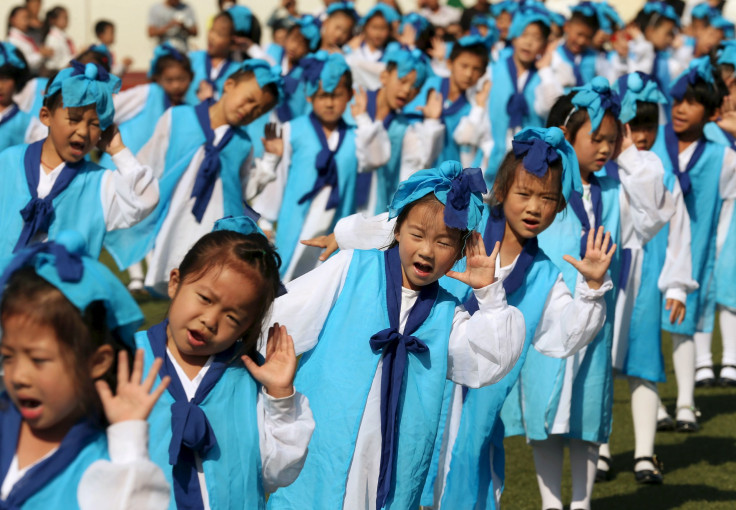China Abolishes One-Child Policy, But Will Families Take Advantage Of The Change Amid Economic Slowdown?

Despite China's announcement that it would abolish its one-child policy, the country may not necessarily be on the brink of a baby boom. State-run media said Thursday the country plans to do away with the policy that has been widely criticized for throwing its age demographics off kilter and shrinking the labor force, but some Chinese families were worried the country's high cost of living will prevent them from having multiple children.
Only half of Chinese couples are willing to have two children, according to National Health and Family Planning Commission research cited by the New York Times. Amid an economic slowdown, linked in part to the aging population and loss of productive labor, families have grown increasingly concerned with financial instability as prices for housing and education surge.
The cost of living is only one of the challenges China’s population growth will face, said Shuming Bao, director of the University of Michigan’s China Data Center. Family dynamics and cultural values have shifted along with education levels and middle class families’ rising household incomes, he said.
“The living cost is one issue — education, housing, that's much more expensive than before, it's true. But I don't think that's the most important issue,” he said. “The culture has been changed. It's totally different than before.”
Previously, Chinese families relied on large structures where children would take care of their aging parents. Now, Bao said, China’s adult children are more independent. They are more likely to live separately from their parents, and they may resent adding more responsibility to their lifestyles by having multiple children.
“People like to enjoy life. They enjoy themselves. They don't work to take on responsibility,” he said.
Maggie Ding, a university lecturer and mother of a young son, told the Times last year that she didn’t want to run the risk of having two boys. A common cultural practice in China demands that young men have apartments and cars to offer their brides before marriage, which can leave their extended families in great debt.
“That means double the mortgage and the pressure. It’s too overwhelming to even think about,” Ding said.
© Copyright IBTimes 2025. All rights reserved.





















